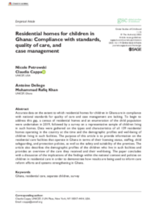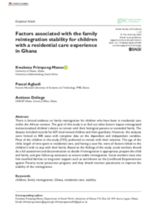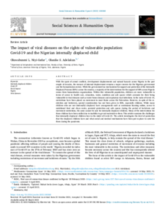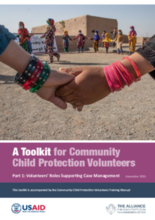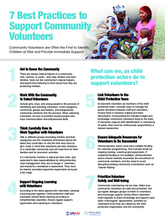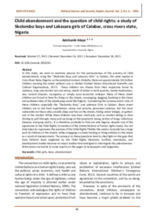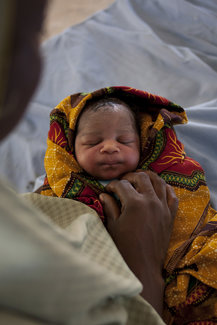

Displaying 51 - 60 of 634
This article explores neighbour protective intervention (protective informal social control) in child neglect. It draws on narrative interviews with seventeen female parents from seven settlements in Ghana.
The purpose of this article is to provide information on the residential care facilities that operate in Ghana in terms of their licensing status, staffing, child safeguarding, and protection policies, as well as the safety and suitability of the premises. The article also describes the demographic profiles of the children who live in such facilities and provides an overview of the care they received and their well-being.
There is limited evidence on family reintegration for children who have been in residential care within the African context. The goal of this study is to find out what factors impact reintegrated institutionalized children’s desire to remain with their biological parents or extended family.
More than 6000 people have left their homes as renewed violence in the Casamance region spills into the Gambia
This article examines the challenges that internally displaced children face in the midst of COVID-19. The article investigates the level of protection that the displaced children have and what social and medical mechanisms have been put in place to cater for them during the pandemic.
Child labour can’t be abolished through force. To address it, we must attend to why children work in the first place.
The Youth Harvest Foundation Ghana (YHFG), a youth development organisation in Ghana, has called on the Government to take steps to reconcile the laws on consent to sex and law on marriage to help address sexual and reproductive health challenges of adolescents.
The Toolkit for Community Child Protection Volunteers and supplementary training manual aim to promote evidence-informed best practices when engaging community volunteers in child protection responses. This toolkit is based on the Community Engagement in Case Management study, which was commissioned by the Alliance and completed in 2020.
A poster for Child Protection teams to emphasize the evidence based practices of engaging volunteers that were documented in the research.
This study examined the reasons for the pervasiveness of the practice of child abandonment, using the “Skolombo Boys and Lakasara Girls’’ in Calabar, the state capital of Cross River State, Nigeria, as the analytical context.

